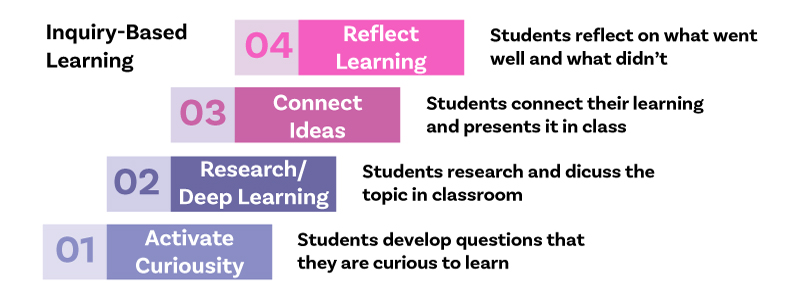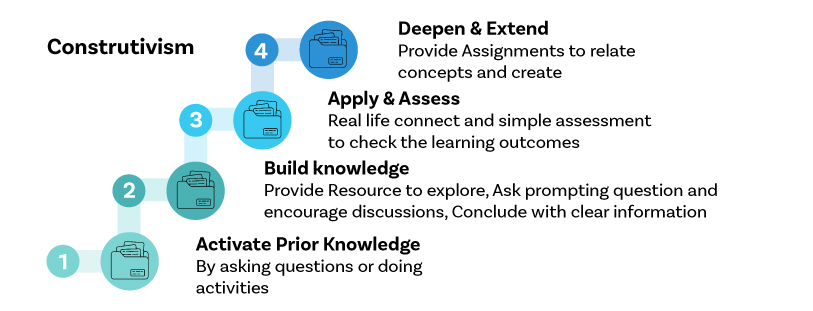The purpose of education is to foster well-rounded, informed and capable, individuals, professionals and citizens. The skills and attitudes that the business world expects are changing paradigms as per the World Economic Forum's recent survey.
The few skills that are reported to be growing in move quickly are critical thinking, analytical thinking, problem-solving, technological literacy, etc., The attitudes like curiosity, lifelong learning, resilience flexibility, and agility are reported to be growing in more quickly.
It’s high time for teachers now.
This brings in the need for the teachers to strategize the instructional process which addresses the gap in the enhancement of skills and attitudes required for their future success.
Need for the shift in pedagogy.
Today’s learners demand more personalized and differentiated instruction as they have diverse learning styles, resources and needs.
The world is changing as it faces various problems hence it requires students who can think critically and creatively processing the data and information provided to address these challenges.
Rather than just completing the given syllabus and transforming knowledge, focus on the development of specific skills and attitudes along with knowledge is required to address the skill set needed in the workforce.
Students have to compete globally as it is interconnected and thus students need skills (21st century skills) beyond knowledge.
Technology has shifted education to a higher paradigm. Students are tech-savvy and are skilled enough to access information.
Hence adaptation is imperative for teachers to initiate a shift in pedagogy that can focus on preparing students to develop the skillset required to meet the societal challenges, and global workforce.
Innovative Approaches:
Innovative approaches in pedagogy are crucial for educational transformation fostering the learners' needs of this decade.
Inculcating thinking among students through an interactive and dynamic learning environment needs tailored Instructional design.
Evidence-based pedagogical methods that we can adapt are constructivism, Inquiry-based learning, Project-based learning, Problem-based learning, flipped classroom STEM/STEAM education, Maker Model, Game Based Learning, etc.,
Inquiry-Based Learning:
Inquiry-based learning is a form of active learning where we kindle the curiosity among students by posing the appropriate high-level questions that direct toward the learning of the concept. It fosters critical thinking problem solving and love for learning. Whatever the inquiry-based method – structured, guided, or open the steps involved remain the same.

Constructivism:
Constructivism is a learning theory based on which many Instructional methods are constructed, one of the best methods of constructivism is 5E. This theory states that learners construct knowledge from experiences rather than just passively accepting information. Teachers should create experiences for students and help them reflect and relate the experiences with the previous ones and construct new knowledge. This method helps students develop skills too.

Irrespective of the pedagogy the teacher uses, he/she must be clear with the following.
- What is the learning outcome expected from the concept?
- What are the skills focused on in the session?
- What is the percentage of thinking in the classroom?
- Am I prepared with the questions that would provoke students' curiosity and thinking in the classroom?
- Am I inculcating inter-curricular connect and real-life connect in my classroom through instruction?
In conclusion, the imperative of shift in pedagogy is undebatable as directed by the emerging landscape of education, technological advancements in education and the diverse needs of learners. Adapting innovative and student-centered approaches helps students acquire skills and mindsets essential for success. The call for the transformative shift in pedagogy is to be considered a visionary investment for the holistic development of learners.
About the Author
Ms. Sunitha R is an Academic Director at Greatify.ai. She is a seasoned educational professional with the experience of 17 years in the field of Curriculum Development, Teacher Training and Instructional Designing dedicated to advancing educational practices through innovative curriculum solutions.